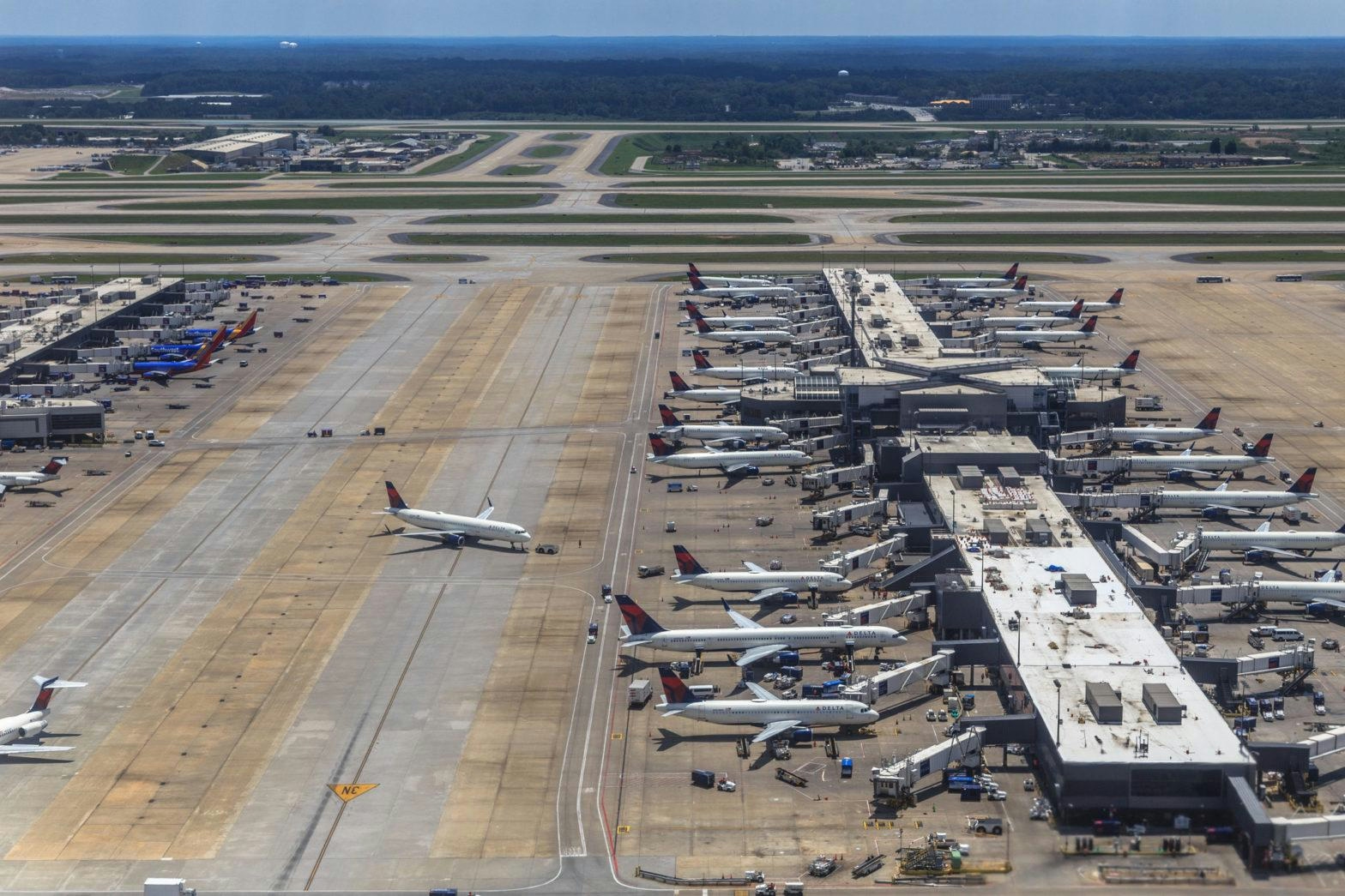エアロジニー — あなたのインテリジェントな副操縦士。
現在のトレンド
Categories
AI Transforms Operations at Atlanta Airport

AI Transforms Operations at Atlanta Airport
A Seamless Passenger Experience
Caroline Snead’s arrival at Hartsfield-Jackson Atlanta International Airport from Greece offered a glimpse into the future of air travel. Upon disembarking, she encountered a facial recognition kiosk that scanned her face, allowing her to proceed without the traditional passport check. Although initially surprised by the technology, Snead described the experience as “very seamless” and “easy.” This enhanced passenger processing system represents a significant advancement in the Department of Homeland Security’s decade-long initiative to integrate facial recognition technology across U.S. airports.
At Atlanta’s airport, artificial intelligence is fundamentally reshaping the traveler experience. Inbound international passengers now verify their identities through facial recognition kiosks, replacing manual passport inspections. Outbound travelers encounter similar biometric totems at departure gates, while the Global Entry line is set to introduce advanced camera systems that capture images as passengers walk by, eliminating the need to pause for verification.
Operational Impact and Technological Integration
Clay Thomas, Customs and Border Protection’s port director in Atlanta, noted that the system has been operational for approximately six weeks and is currently deployed at a dozen U.S. airports. The technology boasts a 98% accuracy rate and has contributed to a 15-20% increase in the detection of impostor passengers nationwide. Importantly, travelers retain the option to opt out of biometric screening and request manual inspection by an officer.
The AI-driven system alleviates administrative burdens on officers and improves wait times, particularly benefiting U.S. citizens who constitute nearly half of Atlanta’s international inbound travelers. The biometric totems’ wireless and portable design allows for flexible deployment tailored to flight schedules and passenger demographics, enhancing operational efficiency.
However, integrating these advanced systems with existing airport infrastructure presents challenges. Significant hardware upgrades, including new circuits and expanded server capacity, are required to support the technology. Data privacy and security remain paramount concerns, with advocacy groups such as the Electronic Privacy Information Center (EPIC) cautioning that facial recognition technology is “inherently dangerous and privacy-invasive,” and may be prone to unreliability or bias.
Workforce Adaptation and Industry Response
The transition to AI-driven processes also demands considerable adaptation from airport staff. Employees accustomed to traditional methods may resist the change, necessitating comprehensive training and change management initiatives to ensure smooth implementation.
The market has responded favorably to these operational improvements, with increased efficiency and streamlined processing attracting investor interest in related technologies. Competitors in the aviation sector are taking note, with several airports and airlines exploring similar AI solutions or investing in advanced training programs to upskill their workforce and maintain a competitive advantage.
Jointly funded by airlines and the airport, these investments underscore a strong commitment to technological advancement. As Atlanta continues to expand its use of AI, Hartsfield-Jackson is positioned to set new benchmarks for efficiency and security in air travel, while navigating the complex challenges inherent in such transformative change.

Factors Positioning Airbus for Leadership in 2026

Emirates Unveils Cabin Design for New Boeing 777X

Eighteen Years On, the Airbus A380 Remains Central to a $34 Billion Airline

How a boom in luxury airline seats is slowing down jet deliveries

Navitaire Outage Attributed to Planned Maintenance

Airbus Plans Record Delivery of 870 Aircraft in 2026

DigiYatra Debuts Outside Aviation at India AI Impact Summit

Vietnam Orders Strengthen Boeing’s Commercial Outlook

Airbus Signals Uncertainty Over Future A400M Orders

JobsOhio Awards $2 Million Grant to Hartzell Propeller for Innovation Center
